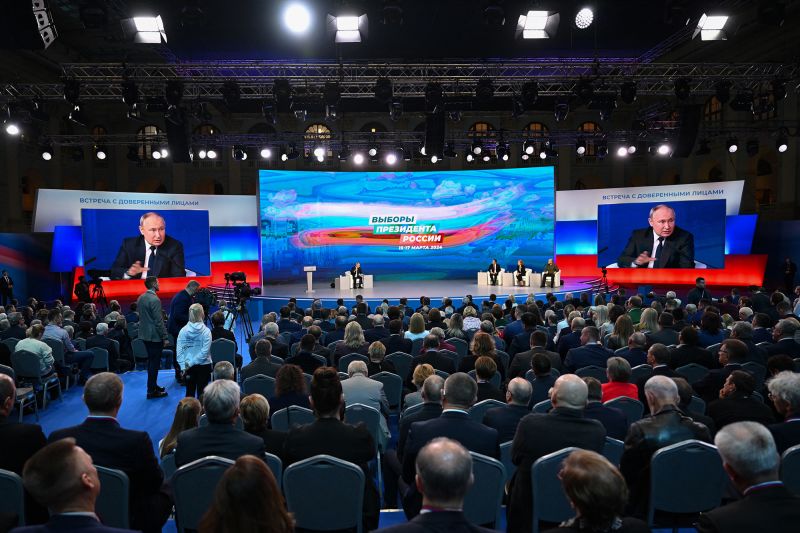No matter the polls or public opinion, one fact seems to be inevitable as Russia’s presidential election nears: President Vladimir Putin will secure another term in office. Despite the myriad of challenges faced by the nation – ranging from economic sanctions, accusations of political repression, to international tensions- Putin’s grip on power shows no signs of weakening. This certainty, while disheartening to some, is seen as a testament to Putin’s political acumen, his controlled state machinery, and the general lack of viable political alternatives.
In the world’s largest nation, presidential elections act not so much as a contest but as a confirmation of continued leadership under Putin. There is an interesting paradox seen in this process; while Russian citizens are free to cast their votes, the outcome is often pre-set. This is not to say that Putin’s government blatantly manipulates electoral results. Instead, it has more to do with the conditions that allow Putin to maintain his unchallenged position.
A primary reason behind this seemingly inevitable win for the incumbent president is Putin’s stranglehold over Russia’s media landscape. News outlets tend to favor the incumbent, presenting him often in positive light and echoing his narratives, while censoring or diminishing rival political figures. This media monopoly ensures the views of Putin and his government are mainstreamed, weaving a narrative of invincibility and inevitability.
Additionally, Putin’s leadership style appeals to a significant proportion of the Russian populace. With his rallying cries of nationalism, Putin has geared his leadership towards reinforcing Russia’s position as a global power, something that resonates with many Russians. The country’s majority sees him as the guarantor of national stability, with the ability to deal assertively with global giants, including the United States and the European Union. Putin’s strongman image falls in line with a longing for a powerful sovereign, a symbolism embedded in the nation’s collective psyche.
Another contributing factor to Putin’s seemingly unchallenged reign is the lack of viable political competition. Russia’s present political landscape is characterised by the absence of any strong political adversary capable of questioning the leadership of Putin. Opposition leaders often face different types of hurdles, including intimidation, legal hindrances, or even unfortunate incidents leading to their disenchantment or demise. These hurdles has resulted in a playing field that is far from level, curbing democratic expression and choice.
Economic factors too favor Putin. Even with economic hits from Western sanctions, Putin has successfully managed to centre the narrative around resilience and defiance, thus refocusing nationalistic sentiments that echo with many voters.
As the presidential elections near, it is unsurprising that many foresee a Putin win. Unyielding control over the media, a lack of formidable opposition, and the harnessing of Russian nationalism are the cloth from which Putin’s political tapestry is woven. This election will be emblematic of Putin’s firm grip over Russia, bending the underlying democratic processes to serve his enduring reign. As such, the presidential election is less about a struggle for power and more about the affirmation of power already held.




